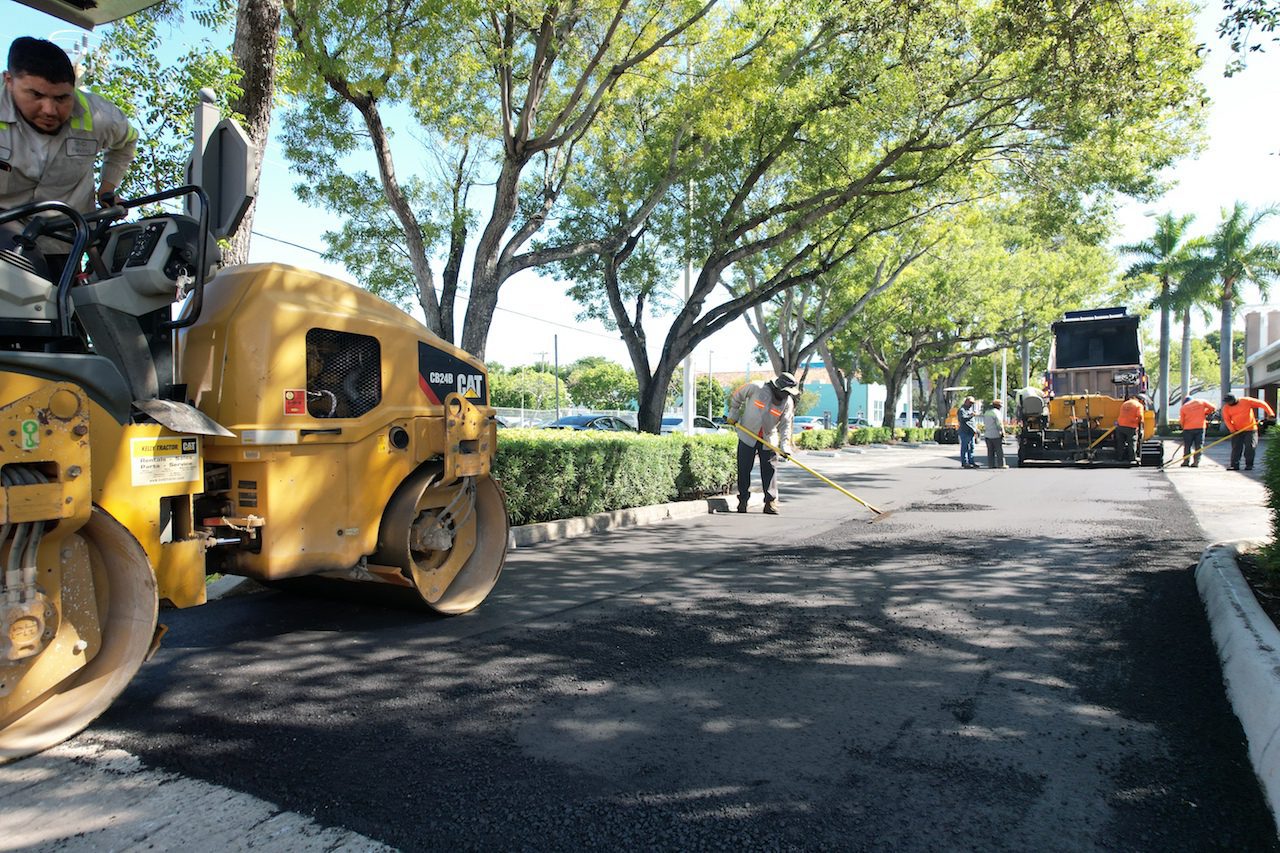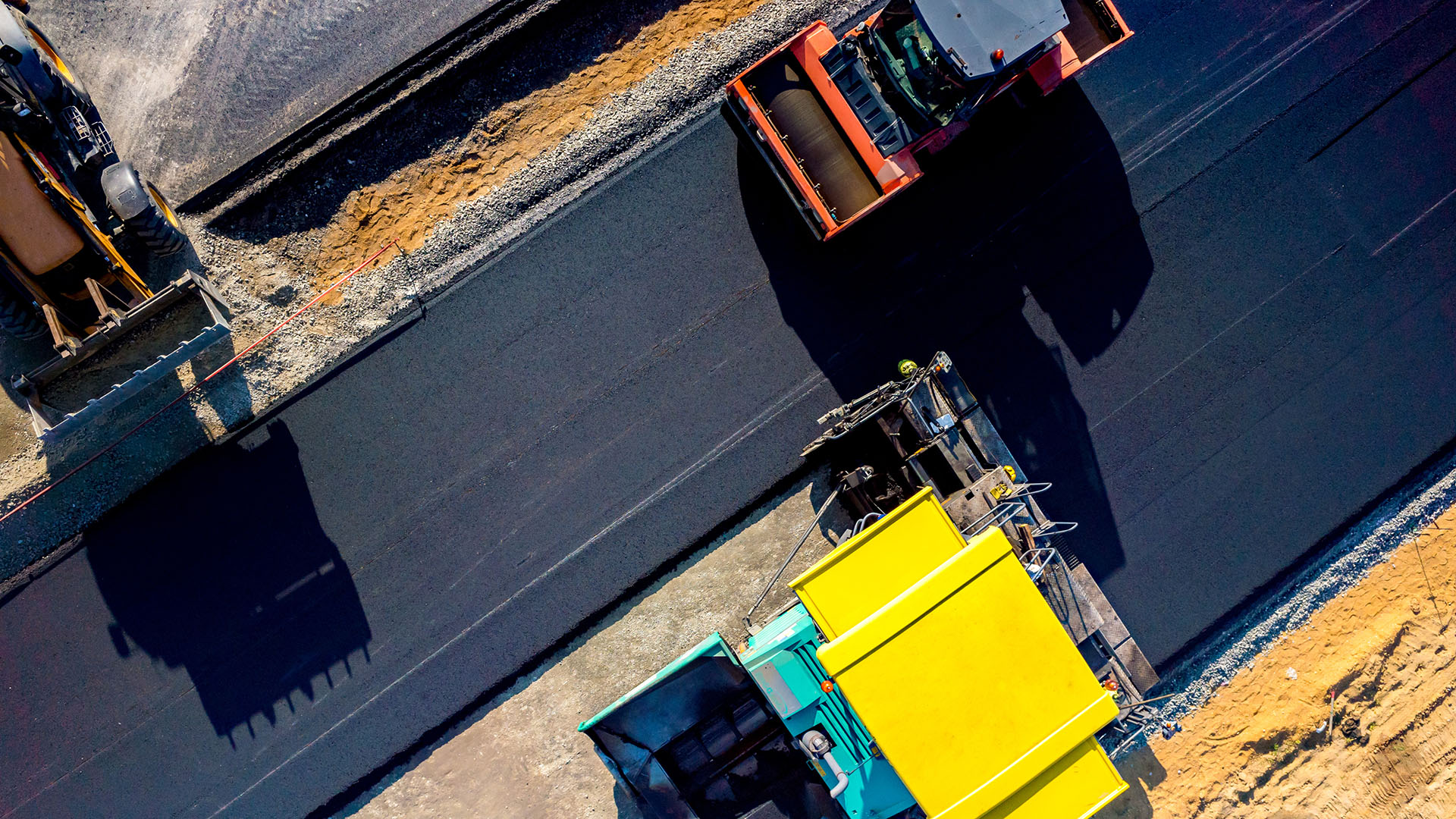Reliable Asphalt Paving Acworth GA: Ensuring Long-Lasting Results for Your Property
Reliable Asphalt Paving Acworth GA: Ensuring Long-Lasting Results for Your Property
Blog Article
Understanding the Various Kinds Of Asphalt Paving Available Today
In the realm of building and construction and facilities, a thorough understanding of the different kinds of asphalt paving is essential for optimum project results. From the durable Hot Mix Asphalt, developed for high-traffic locations, to the environmentally mindful Porous Asphalt that promotes water management, each kind offers distinct advantages customized to details needs. Furthermore, factors to consider such as resilience, setup rate, and sustainability better complicate the decision-making procedure. As we explore these options, it comes to be obvious that the choice of asphalt paving can significantly impact not just instant efficiency yet also long-term performance and environmental factors to consider.

Hot Mix Asphalt
What makes hot mix asphalt a recommended selection for road construction and repairs? Warm mix asphalt (HMA) is favored for its resilience, versatility, and efficiency under varying problems.
HMA's capability to be tailored to certain project needs is another substantial benefit. Different ranks and formulas can be utilized to boost residential properties such as versatility, resistance to contortion, and durability. Additionally, warm mix asphalt can be quickly set up and open up to website traffic, reducing disturbance during building and construction.
Environmental factors to consider also contribute in the preference for HMA. The material is recyclable, and redeemed asphalt pavement (RAP) can be recycled, advertising sustainability in road building and construction practices. Generally, warm mix asphalt stands apart as a reliable choice, properly offering a resilient, high-performance surface that fulfills the demands of contemporary framework.
Cold Mix Asphalt
Cold mix asphalt is a versatile alternative to hot mix asphalt, specifically suited for particular applications such as patching and surface area therapies. This sort of asphalt is produced at ambient temperatures, permitting easier handling and application without the need for substantial home heating tools.
Generally composed of asphalt solutions or lessenings, cool mix asphalt can be mixed on-site or purchased pre-mixed. Its residential properties allow it to bind well with existing sidewalk, making it a reliable solution for repairing gaps, splits, and various other surface area issues. Moreover, it can be applied in a variety of climate condition, offering a useful choice for year-round maintenance.

However, while chilly mix asphalt is excellent for short-term solutions, it might not offer the exact same long life or resilience as warm mix asphalt under rush hour conditions. It is best used for low-traffic areas or as a momentary remedy until more permanent repair services can be carried out.
Cozy Mix Asphalt
While warm mix asphalt has actually long been the standard for road construction, warm mix asphalt (WMA) has emerged as an ingenious option that stabilizes efficiency with ecological factors to consider. WMA is generated at dramatically reduced temperature levels-- typically between 215 ° F and 275 ° F-- compared to warm mix asphalt, which is heated to around 300 ° F. This decrease in temperature level not just lowers power usage however also reduces greenhouse gas discharges throughout manufacturing.
The modern technology behind WMA entails making use of ingredients or strategies that make it possible for much better workability at lower temperatures. These can include chemical ingredients, frothing procedures, or a combination of both. Consequently, WMA maintains the necessary residential or commercial properties for resilience and performance while offering an extra ecologically friendly option.

Permeable Asphalt
Permeable asphalt stands for a forward-thinking strategy in sidewalk layout, focusing on both capability and ecological sustainability. This innovative product is especially crafted to permit water to penetrate via its surface area, properly lowering drainage and advertising groundwater recharge. As an outcome, permeable asphalt is an exceptional option for areas susceptible to flooding or where stormwater management is vital.
The structure of porous asphalt differs from typical asphalt, including a greater portion of gaps that facilitate water drainage. This residential property not only reduces surface water buildup however likewise helps mitigate concerns like hydroplaning and enhances car traction throughout damp conditions. asphalt paving acworth ga. Additionally, permeable asphalt can contribute to urban warmth island decrease, as it allows for better dissipation and cooling impacts in urban settings
In regards to installation, permeable asphalt requires mindful consideration of underlying water drainage systems to guarantee optimum performance. Upkeep usually entails routine examinations and cleaning up to avoid blocking from particles, which can impair its leaks in the structure. Overall, porous asphalt works as a sustainable paving service that aligns with contemporary ecological goals, making it a progressively preferred choice for both private and public jobs.
Rubberized Asphalt
Rubberized asphalt is an innovative paving material that incorporates recycled rubber, commonly sourced from scrap tires, right into the asphalt mix. This ingenious technique not just enhances the performance of standard asphalt yet also promotes ecological sustainability by recycling waste products. The enhancement of rubber improves the versatility and longevity of the sidewalk, making it resistant to breaking and deformation under varying temperature level problems.
Among the substantial advantages of rubberized asphalt is its ability to decrease noise contamination. The rubber fragments soak up audio, causing quieter roadways, which is especially helpful in metropolitan locations. Moreover, this sort of asphalt offers enhanced skid resistance, improving security for automobiles.
Rubberized asphalt likewise contributes to extending the lifespan of roadway surface areas, bring about lowered upkeep expenses gradually. This durability is particularly valuable for high-traffic areas where damage are increased. Furthermore, its resistance to dampness infiltration assists reduce the risk of water damages, additionally improving sturdiness.
Final Thought
In summary, the selection of asphalt paving kinds-- Hot Mix Asphalt, Cold Mix Asphalt, Warm Mix Asphalt, Porous Asphalt, and Rubberized Asphalt-- each accomplish unique functions that accommodate varied building and maintenance demands. These choices not only enhance roadway quality yet likewise contribute to sustainability via minimized energy intake and additional info enhanced water management. Recognizing these differences is crucial for picking the suitable asphalt kind, eventually ensuring reliable and effective leading services in various atmospheres.
From the durable Hot Mix Asphalt, made for high-traffic areas, to the eco mindful Porous Asphalt that facilitates water administration, each kind provides distinctive advantages customized to specific requirements.Typically composed of asphalt solutions or cutbacks, chilly mix asphalt can be combined on-site or bought pre-mixed.While warm mix asphalt has actually long been the criterion for roadway building, warm mix asphalt (WMA) has actually emerged as a cutting-edge option that stabilizes performance with ecological factors to consider.Rubberized asphalt is an advanced paving product that includes recycled rubber, usually sourced from scrap tires, right into the asphalt mix.In recap, the variety of asphalt paving types-- Warm Mix Asphalt, Cold Mix Asphalt, Cozy Mix Asphalt, Porous Asphalt, and Rubberized Asphalt-- each satisfy unique features that provide to diverse construction and maintenance demands.
Report this page